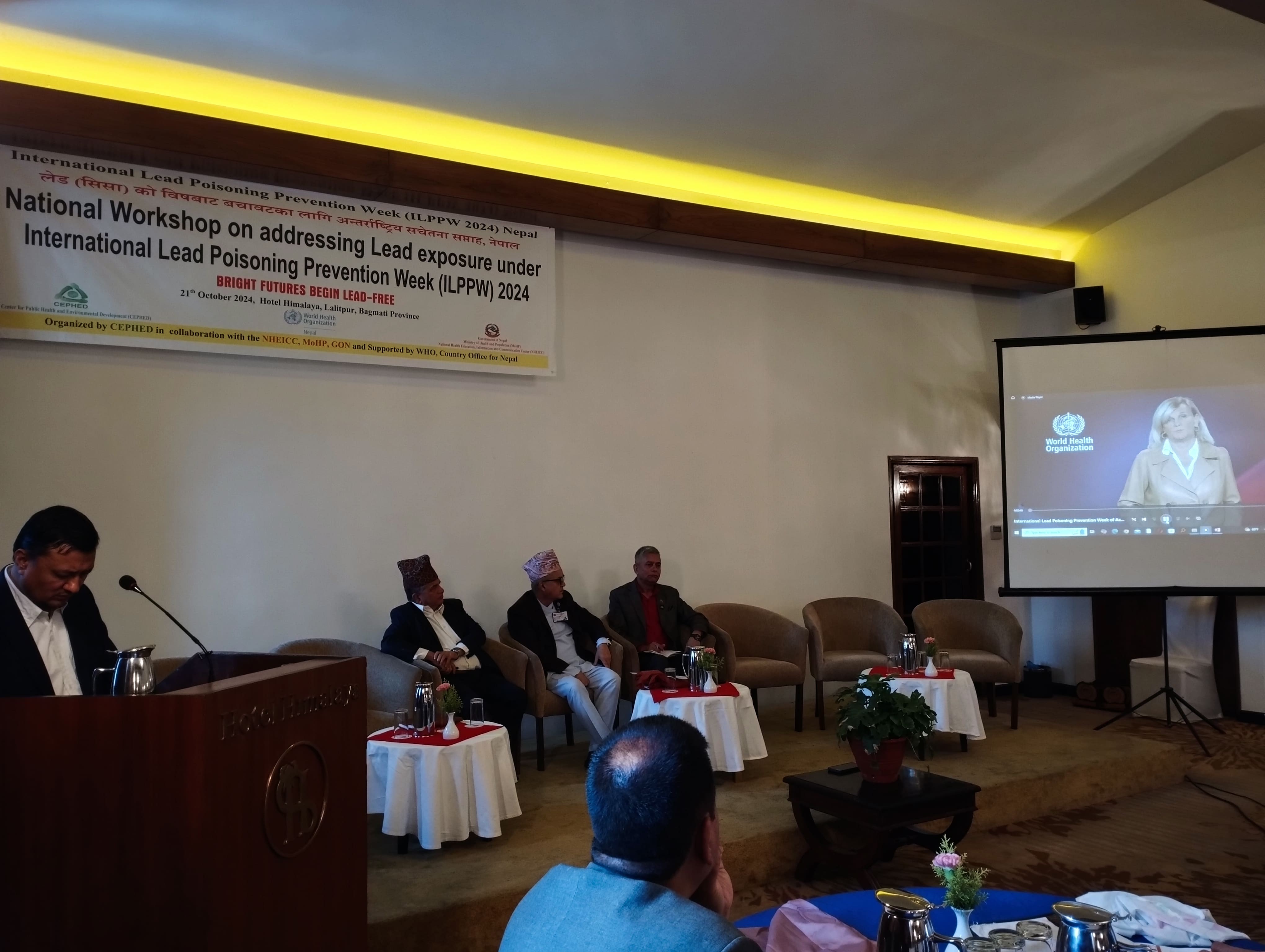Lalitpur, Nepal – In observance of International Lead Poisoning Prevention Week (ILPPW) 2024, a National Workshop on Addressing Lead Exposure was held at Hotel Himalaya, Lalitpur, on October 21, 2024. The workshop, organized by the Center for Public Health and Environmental Development (CEPHED) in collaboration with the National Health Education, Information, and Communication Centre (NHEICC), the Ministry of Health and Population (MoHP), and supported by the World Health Organization (WHO), focused on the theme "Bright Futures Begin Lead-Free."

The event featured presentations from prominent figures, including experts and officials from government bodies, NGOs, and international organizations. The session commenced with a video message from Dr. Maria Neira, Director of Environment, Climate Change, and Health at the WHO, emphasizing the global urgency in addressing lead exposure, particularly in children, and its devastating long-term effects on health and development.
Dr. Neira highlighted the critical need for countries like Nepal to take concrete steps in preventing lead poisoning, especially in vulnerable populations. She stressed, “The health of future generations relies on our collective action today.”
Among the distinguished attendees were representatives from government health departments and environmental agencies, who discussed national policies aimed at minimizing lead exposure in Nepal. They also addressed the socio-economic impacts of lead poisoning, which predominantly affects children, causing developmental delays, learning disabilities, and various neurological and behavioral disorders.
CEPHED’s initiative in organizing this workshop reflects its commitment to raising awareness about the dangers of lead, particularly from paints, toys, and industrial emissions. The workshop aimed to forge a collective effort among stakeholders to enforce stricter regulations on lead usage and promote safe, lead-free alternatives.
Participants also deliberated on the need for effective monitoring and public education campaigns to ensure that the general population is informed about the risks of lead exposure and how to safeguard their health.
As part of International Lead Poisoning Prevention Week, this event serves as a crucial reminder that addressing environmental hazards like lead contamination is not just a national responsibility but a global priority.